

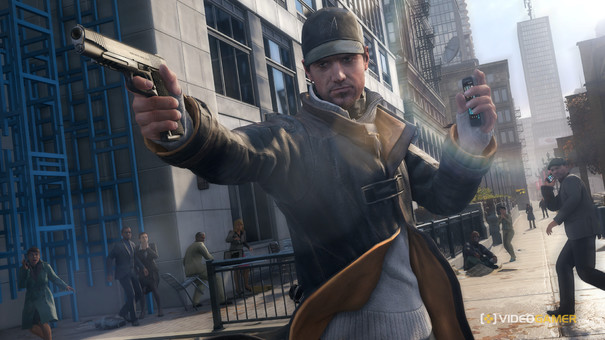

By now you've probably seen my Watch Dogs score, weighing it up before either snorting with derision or silently nodding and saying 'I told you so', to no-one in particular (maybe yourself). Is it a bad game? Not at all. In fact, it has the makings of an excellent one. But it's also a true cross-generational title, a game that for all its forward-thinking falls back on tried, trusted, repetitive mission and sidequest structure far more often than it should. It's a game where it's easy to slip into autopilot – go here, hack this, climb this, repeat to fade. Hours will tumble away without you noticing. Usually, this is the sign of a classic, but in Watch Dogs' case, it's actually a sign of an incredibly slick Skinner box.
You'll remember you played it, and you'll remember you enjoyed doing so. But, for me at least, the game exists as a blur of near-identical mission loops merging into each other; of hacking identical ctOS boxes; of identical solutions to identical problems. By the fifth or sixth hour, the routine for tackling all of the game's problems is established: hack camera, disable reinforcements, sneak into area, solve fairly easy puzzle, sneak out. If it goes sideways, use slo-mo to kill everyone in your way.
Similar things could be said about critical darling Far Cry 3, of course. The difference being in that game you can't rely on your magical phone to give you all of the options. You have to sneak in and manually complete your task. It adds a danger to play that's largely absent here - a tension that Watch Dogs never gets close to. Aiden's phone is overpowered, his options undercooked, leading to samey play. For example, why is there a construction lift outside almost every ctOS building? Because, otherwise, how would the player get in?
Hacking isn't just the game's weapon: it's a comfort blanket. It might empower the player, but the relative lack of choice – or, more accurately, a lack of options to rival obvious winning strategies – undermines the experience. The fact that you level very quickly, unlocking powerful tools in the early going, doesn't help this.
It's a shame, because there's great potential here. After players complete a certain story mission, they can then access sidequests to hunt down members of a sex-trafficking ring. It's an exciting development: a spin-off from the campaign that ties neatly into the established narrative, as well as Aiden's motivations and the player's. Starting this quest, I felt more like a vigilante than I had at any point in the game. I was going to find these guys, and bring them all down.
Then I realised that all I was doing was driving to a point on the map, pressing square, driving to another point on the map, and pressing square. I wasn't investigating. I wasn't being a vigilante. I was an errand boy in a mask. It's the same across many of the (plentiful) other sidequests: originally appealing, but requiring little more thought – or action – than turning up and going through the motions.
As I said, it's not a bad game. It's tremendously solid – the animation in particular is excellent, the gunplay engaging, the driving and police chases offering a certain excitement. It gives players hours and hours of gameplay. But it's also has with no real spark, outside of intrigue in the story. On the surface it's a rather unoriginal exploration of the the false idol of information security and the true cost of vigilantism, among other themes. But, glacial opening act aside, it's well-constructed and told, and, unlike some other open-world games, you'll be putting up with the mission repetition to see what happens next, not the other way around.
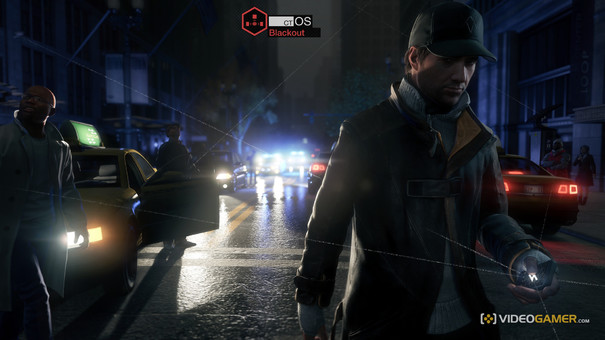
There's one element of Watch Dogs that could have been truly brilliant, though, if it had been integrated into the 'main' game with more conviction: multiplayer. It's broken down into five distinct types: tailing, invasion-based hacking, races, free roam and team-based decryption battles. The last three are diverting, if throwaway. The first two could point towards the future of the series.
Simply put, there's nothing else in the game to match the paranoia brought on by invading or being invaded. Unlike Dark Souls' similar system, your aim isn't to reveal yourself or engage the other player. It's to lay low, act inconspicuous, and steal what you can. It doesn't work as well as it could – you're limited to a rather small area to find or avoid the other agent - but it offers something the main game doesn't have: tension.
It makes me wish for a sequel where MP and SP were persistent, where players could team up to control districts, to hack more than each other's phones. Granted, maintaining a balance would be difficult – most multiplayer games descend into chaos within seconds of starting. But the potential is there, and it is underused at the moment.
As it stands, Watch Dogs exists as a polished cross-generation open-worlder, one that has good ideas (even some great ones) but isn't either moving anything forward or doing established ideas better than others. Here's hoping for a 2016 sequel that takes the same steps that Assassin's Creed II did, introducing a more vibrant, architecturally noteworthy city and refining the core mechanics to ensure players don't rely on the same old methods. Throw an integrated multiplayer on top and you have the makings of something special.
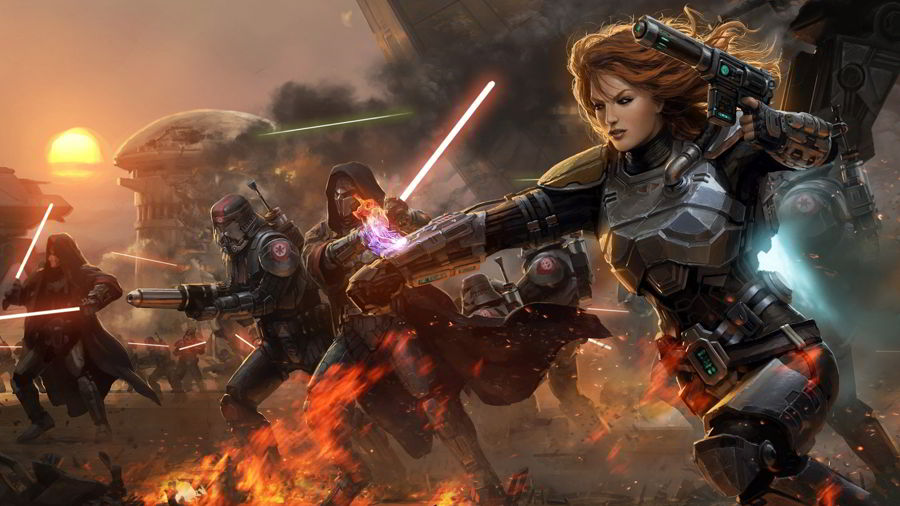

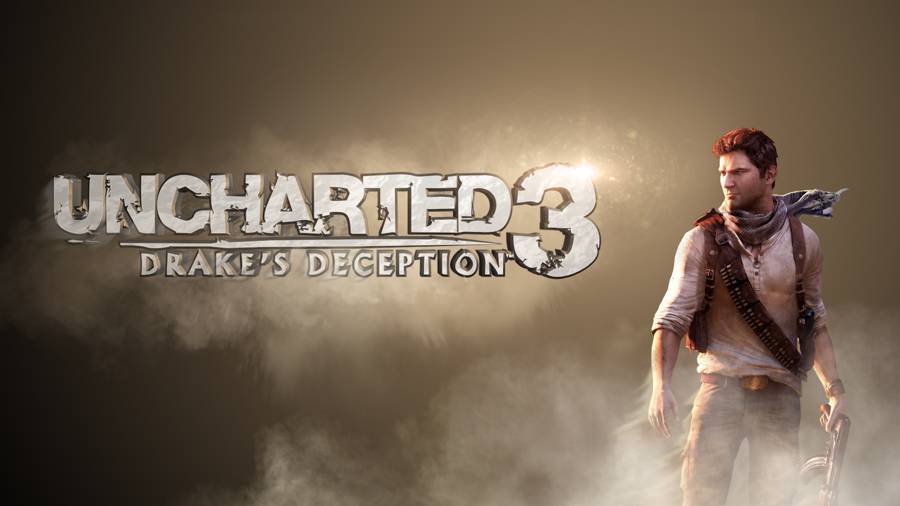
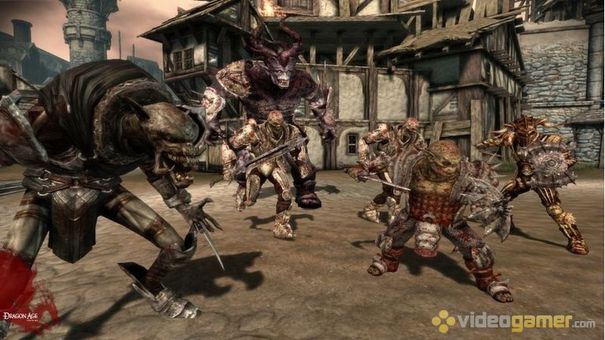
 How to import your Mass Effect 2 Character into Mass Effect 3 for the PC
How to import your Mass Effect 2 Character into Mass Effect 3 for the PC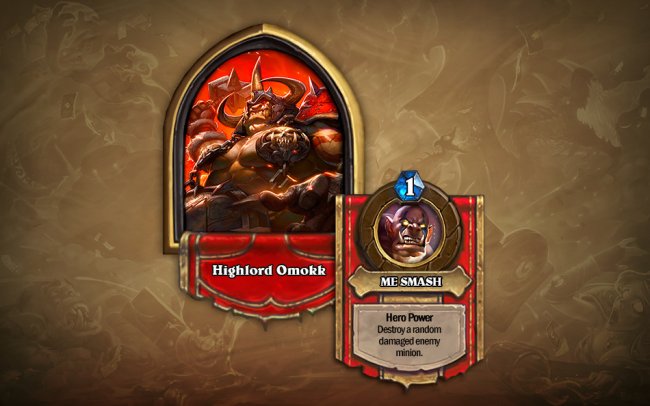 Hearthstone Heroic Guide: Blackrock Mountain Part 3
Hearthstone Heroic Guide: Blackrock Mountain Part 3 Walkthrough Tales from the Borderlands – Episode 5: The Vault of the Traveler
Walkthrough Tales from the Borderlands – Episode 5: The Vault of the Traveler Microsoft screwed up with Xbox One, but now its time to buy
Microsoft screwed up with Xbox One, but now its time to buy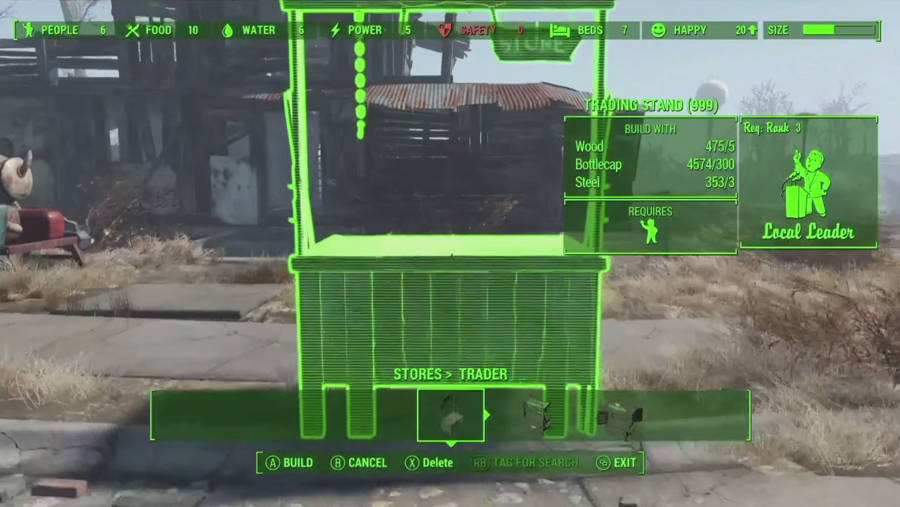 Fallout 4 Settlement Guide - Base Building, Materials & Settlers
Fallout 4 Settlement Guide - Base Building, Materials & Settlers